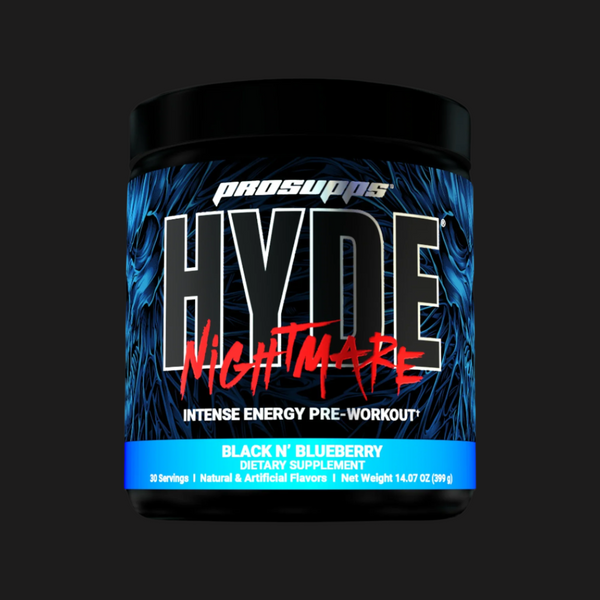How long does it take for caffeine to kick in & how long does it last?
 Written by Pri Prunella
Written by Pri Prunella November 18, 2025
It is no news that caffeine is one of the world’s most commonly used stimulants. If you think about it, caffeine is not only in coffee or tea, but also in energy drinks, sodas, and workout supplements! Millions of people use caffeine to get through their days, boost their focus, and increase their daily energy. But, while many of us consume this stimulant, do we actually know the science behind when caffeine starts working or how long it stays in our systems?
If you’ve ever wondered how long it takes for caffeine to kick in, how long it takes to wear off, or why some people can sip an espresso at dinner and still fall asleep, this guide breaks it down. We’ll cover onset, duration, and clearance, plus the key factors that make caffeine affect everyone differently.
How long does it take for caffeine to kick in?
The short answer: pretty quickly. Caffeine begins to take effect in the body within about 15 minutes. After you consume caffeine, whether in coffee, tea, or a pre-workout, it begins to absorb into your bloodstream, and most people start to notice the effects during this window, with energy, focus, and alertness gradually rising.
Caffeine levels typically peak in your blood within 30 to 60 minutes. That’s when you’ll feel its strongest effects: sharper focus, increased alertness, and sometimes even the jitters if you’ve had too much.
When it comes to the speed of absorption, it varies depending on what exactly you consume. Coffee and energy drinks tend to hit faster since they deliver caffeine in liquid form. Caffeine pills and supplements can also act quickly, depending on whether they’re immediate-release or slow-release formulas. Tea, on the other hand, contains both caffeine and L-theanine, an amino acid that can smooth out the stimulant effect and make it feel gentler. Food also plays a role in how caffeine impacts your body. Drinking caffeine on an empty stomach typically causes it to take effect faster, while consuming it with a meal may slightly slow the absorption process.
How long does it take for caffeine to wear off?
Knowing when caffeine kicks in is one thing, but how long does it take for caffeine to wear off? On average, most people feel the stimulating effects for about 4 to 6 hours.
It’s important to distinguish between feeling the effects and caffeine being cleared from your body. Even after the buzz starts to fade, caffeine is still present in your bloodstream. That’s why you might not feel “wired” anymore, but still notice trouble falling asleep if you drank caffeine too late in the day.
How long does caffeine stay in your system?
Caffeine generally stays in your system with a typical half-life of 4 to 9 hours, but this can range from 2 to 12 hours depending on the individual. This means it can take around 24 hours for caffeine to be completely cleared from your body. The half-life of caffeine is the time it takes your body to eliminate half of it. That means if you drink 200mg of caffeine at noon, you could still have about 100mg circulating in your body by 6 p.m. For certain individuals, its effects may last up to 12 hours. That’s why having caffeine in the late afternoon or evening can increase your risk of insomnia.
Your liver plays a major role here. Enzymes in the liver metabolize caffeine, but genetics, age, and overall health can affect how quickly or slowly this process happens.
How long does 200mg of caffeine last?
The exact duration of 200mg of caffeine depends on your metabolism and tolerance; however, for most adults, this amount will provide noticeable effects for about 6 hours. If you’re sensitive to caffeine, 200mg might feel very strong and last longer than average. If you’re used to higher intakes, the effects may fade faster.
For context, a typical cup of coffee contains around 95mg of caffeine, so 200mg is roughly the equivalent of two cups. Health experts generally recommend keeping caffeine intake below 400mg per day, about four cups of coffee. That makes 200mg a solid, safe serving for most people, especially when used for workouts, long study sessions, or early mornings.
If you’re interested in precise servings, caffeine supplements and pre-workout supplements from ProSupps can be helpful since they give you a measured amount compared to the variable content in coffee or tea. And if you prefer to skip stimulants, we also offer non-stim pre-workouts (caffeine-free) for those who want the performance boost without the caffeine.
Can caffeine stay in your system for days?
Here’s where the myths start: can caffeine stay in your system for days? For healthy adults, the answer is no. Caffeine does not remain in your system for multiple days. The stimulating effects wear off within hours, and your body clears it within a day or so. However, there are some exceptions.
- People with slower metabolisms due to genetics may process caffeine less efficiently.
- Pregnant women metabolize caffeine more slowly, so it can stay active for longer.
- Those with liver conditions or on certain medications may also experience extended clearance times.
That said, while traces of caffeine metabolites might remain detectable for a longer period, the energizing effects you feel do not last beyond several hours.
How does caffeine affect people differently?
One of the most fascinating things about caffeine is how differently it affects people.
So, how does caffeine affect people differently? The answer lies in a mix of genetics, physiology, and lifestyle factors. For example, variations in the CYP1A2 enzyme, which helps metabolize caffeine, can make some people “fast metabolizers” who break it down quickly, while others are “slow metabolizers” who feel the effects longer and more intensely.
Other factors include:
- Tolerance: Regular caffeine drinkers often need more to feel the same boost.
- Body mass: Smaller individuals may feel stronger effects at the same dose.
- Age: Younger people tend to metabolize caffeine more efficiently.
- Pregnancy: Hormonal changes slow caffeine clearance.
This explains why one person can drink an espresso after dinner and sleep like a baby, while another lies awake for hours after an afternoon latte.
Practical tips for safe caffeine use
Caffeine can be an amazing tool when used wisely. Here are a few strategies for maximizing benefits while minimizing downsides:
- Time it right: The best time to consume caffeine is in the morning or early afternoon. Avoid it within 6–8 hours of bedtime to reduce the risk of sleep disruption.
- Pair with food and water: Drinking caffeine with food can reduce jitters, while staying hydrated helps your body process it efficiently.
- Know your limit: Stick to a daily maximum of 400mg. If you’re sensitive, aim for less.
- Choose the right form: Supplements and pre-workouts from ProSupps let you control your dosage more precisely than coffee or tea.
Key takeaways on caffeine duration
Here’s a quick recap of everything we’ve covered:
- Kick in: 15–45 minutes.
- Peak: Around 1 hour.
- Wear off: 4–6 hours.
- Stay in system: Up to 12 hours (varies by individual).
- 200mg duration: Around 6 hours for most adults.
FAQs
Does caffeine work faster on an empty stomach?
Yes. Caffeine absorbs more quickly when your stomach is empty, which can make the effects noticeable sooner.
How long does it take for caffeine to peak?
Caffeine usually peaks in your bloodstream within 30–60 minutes after consumption.
How late in the day should you stop drinking caffeine?
Most experts recommend stopping caffeine at least 6–8 hours before bedtime to protect sleep quality.
What is the 90-minute coffee rule?
This rule suggests waiting about 90 minutes after waking up before having caffeine. It allows your natural cortisol levels (your body’s wake-up hormone) to rise and fall first, so caffeine feels more effective.
Is 200mg of caffeine safe?
Yes, for most adults. 200mg is well within the safe daily limit of 400mg. However, caffeine sensitivity varies, so adjust based on your tolerance.
References
- National Academies Press (US). (2001). Pharmacology of caffeine. Caffeine for the Sustainment of Mental Task Performance - NCBI Bookshelf.
- Antonio, J., Newmire, D. E., Stout, J. R., Antonio, B., Gibbons, M., Lowery, L. M., Harper, J., Willoughby, D., Evans, C., Anderson, D., Goldstein, E., Rojas, J., Monsalves-Álvarez, M., Forbes, S. C., Lopez, J. G., Ziegenfuss, T., Moulding, B. D., Candow, D., Sagner, M., & Arent, S. M. (2024). Common questions and misconceptions about caffeine supplementation: what does the scientific evidence really show? Journal of the International Society of Sports Nutrition, 21(1).
- L-theanine, a natural constituent in tea, and its effect on mental state. (2008). PubMed.
- Marriott, B. M. (1994). Effects of caffeine on cognitive performance, mood, and alertness in sleep-deprived humans. Food Components to Enhance Performance - NCBI Bookshelf.
- Hallare, J., & Gerriets, V. (2025, May 3). Elimination Half-Life of Drugs. StatPearls - NCBI Bookshelf.
- Shan, L., Wang, F., Zhai, D., Meng, X., Liu, J., & Lv, X. (2022). Caffeine in liver diseases: Pharmacology and toxicology. Frontiers in Pharmacology, 13.
- Wierzejska, R. E., & Gielecińska, I. (2024). Evaluation of the caffeine content in servings of popular coffees in terms of its safe intake—Can we drink 3–5 cups of coffee per day, as experts advise? Nutrients, 16(15), 2385.
- Southward, K., Rutherfurd-Markwick, K., Badenhorst, C., & Ali, A. (2018). The role of genetics in moderating the inter-individual differences in the ergogenicity of caffeine. Nutrients, 10(10), 1352.
GET LEAN
 Why You're Struggling
Can't Lean Out? Here's Why You're Struggling
Why You're Struggling
Can't Lean Out? Here's Why You're Struggling
We all know the feeling. You’ve been working hard in the gym, sticking to your diet and getting in your...
 Weight Loss
Choosing the Best Protein Powder for Weight Loss
Weight Loss
Choosing the Best Protein Powder for Weight Loss
Struggling to shed body fat and lean out? You might need to focus more on your nutrition, specifically your protein...
 Weight Loss
9 Ways to Speed Up Your Weight Loss and Burn More Fat
Weight Loss
9 Ways to Speed Up Your Weight Loss and Burn More Fat
Weight loss is a major goal for more than 40 percent of Americans. Is it something you’re working toward, too?
 Workout Routine
10 Tips for Building a Sustainable Workout Routine
Workout Routine
10 Tips for Building a Sustainable Workout Routine
Starting a fitness journey is an exciting time, but maintaining a sustainable workout routine can be challenging. From setting realistic...



























